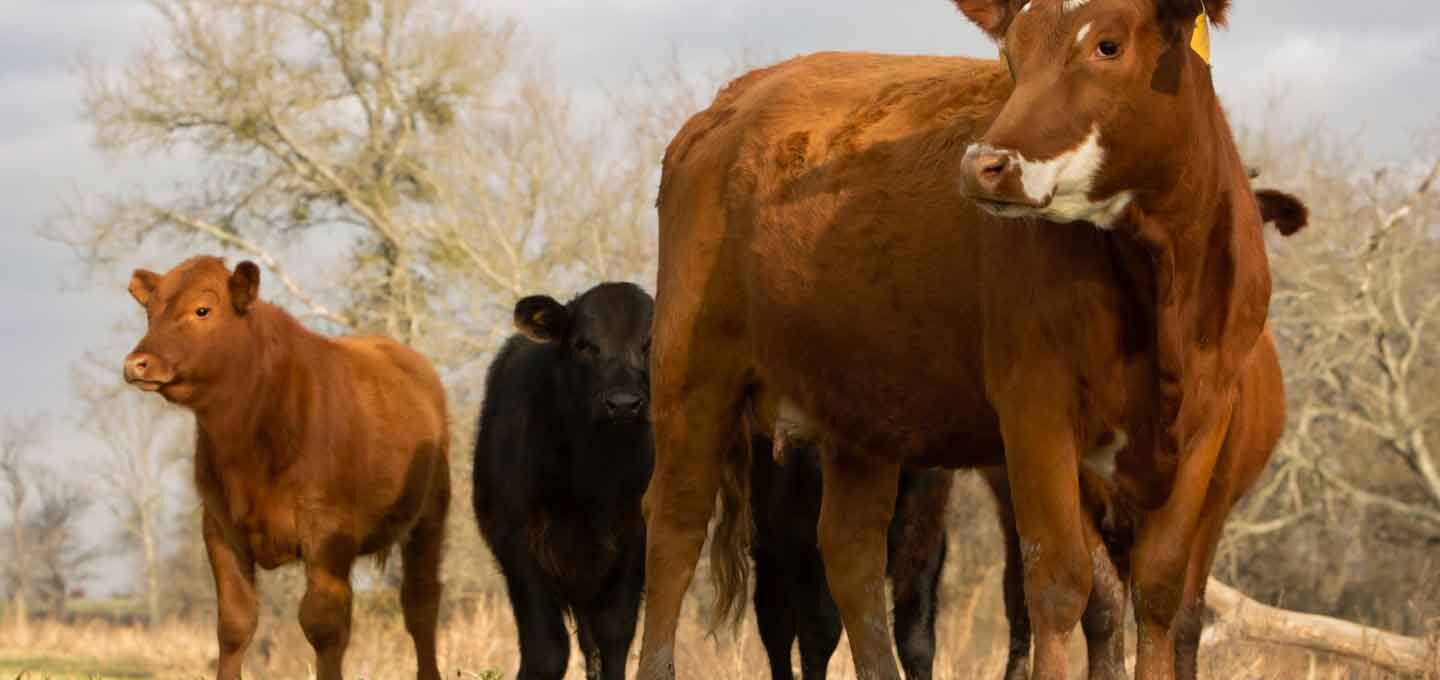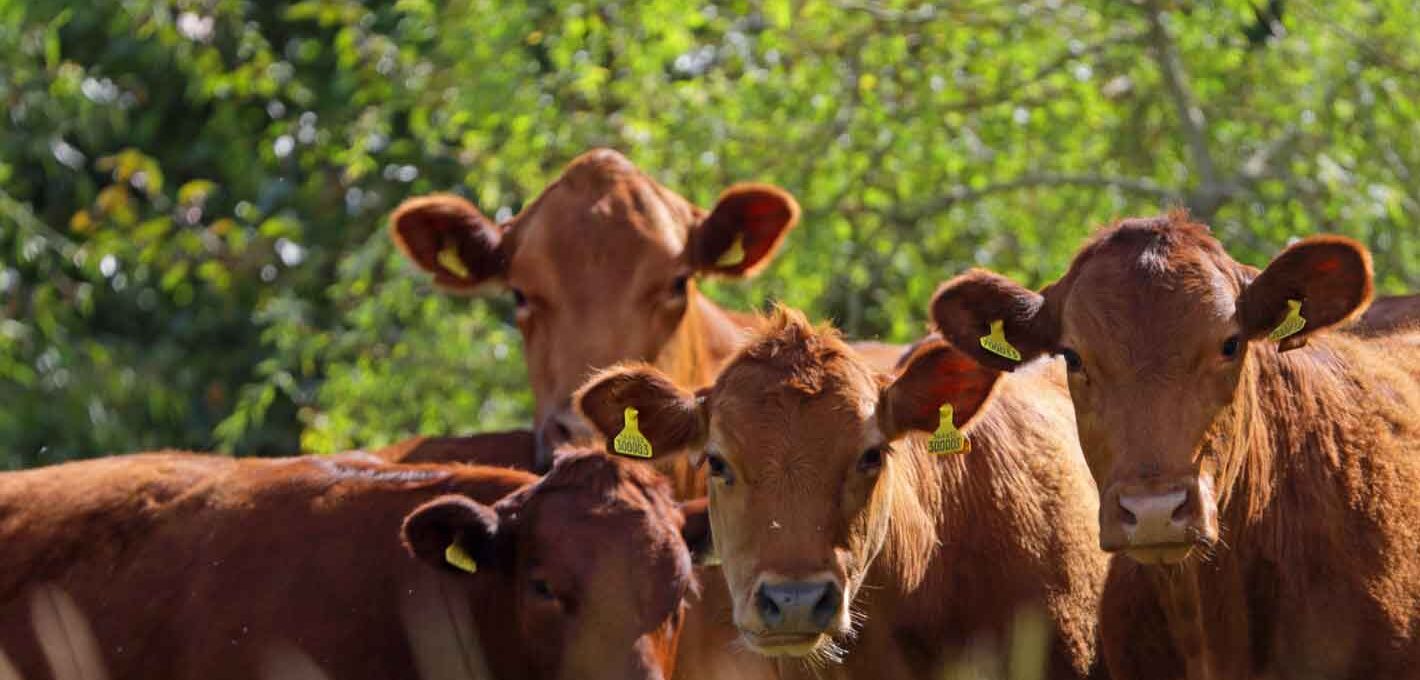
Innovation
Navigating the many challenges of a changing climate while feeding a growing population requires creativity and drive. We’re investing in innovation, going well beyond today’s status quo, to create solutions that are better for the environment, the livestock and the people raising cattle.
Key opportunities
Beef production accounts for 3% of all greenhouse gas (GHG) emissions in the U.S. Of this, 63% is the result of a digestive process known as enteric fermentation, where cattle digest plant matter that humans cannot. A natural part of cattle digesting their food, this may seem to be an unavoidable by-product of feeding and raising livestock. However, by investing in technologies and exploring crossbreeding opportunities that support innovative nutrition and productivity solutions, we can reduce the environmental impacts of cattle while continuing to meet consumer demand.
While a potent greenhouse gas, methane is relatively short-lived in the atmosphere. By supporting advancements by farmers and ranchers to achieve methane reductions, we can ensure our industry is a key player in helping the world achieve ambitious climate change targets. At the same time, we will continue drawing on the expertise of today’s innovators and harnessing novel solutions that tackle emissions while safeguarding the future of beef.
Sustainable solutions
We are harnessing the latest science and technologies to diversify feed solutions that meet nutritional requirements of cattle while reducing the emissions they produce in digestion. We are also exploring and optimizing the role genetics play, building on learnings from producers who are pioneering this research.

Accelerating feed innovation
In-house Cargill scientists study methane production in cattle to inform innovative solutions.
Invested in artificial rumens to study the impact of feed additives on dairy and beef cattle in real time.
Feed additives, like rumen modifiers, can directly influence enteric fermentation and methane reduction to minimize environmental impact.
Accelerate in action
Driving meaningful reductions in methane production
It is no secret that cattle produce methane emissions. Every time cattle eat, their food moves through a unique digestive system of multiple stomach compartments, resulting in enteric fermentation and methane production.
This methane is part of what’s known as the biogenic carbon cycle and mitigating these emissions can play a large role in contributing to climate action. We are supporting farmers to take on emissions in livestock, encouraging a holistic mitigation approach.
We focus our efforts in three areas: best farm management practices, improved animal productivity through feed and nutrition, and rumen modifiers. By collaborating with farmers and ranchers on how to harness innovative feed solutions and incorporate additives that reduce methane production, we are supporting them to nourish the world in more responsible, sustainable ways.
Learn more about our integrated approach to methane mitigation

Partnering for progress
Innovation happens fastest with collaboration. By working with our animal nutrition experts, industry peers and sustainability organizations, we are pooling our expertise to accelerate the development of planet-friendly solutions.